Always ask what the issue is, whether the part can be repaired or needs replacing, what the total cost will be, if the part is OEM or aftermarket, and what kind of warranty comes with the repair.
Car repairs are a necessary part of vehicle ownership—but they don’t have to be a financial black hole. Whether you're dealing with an unexpected breakdown or just trying to stay ahead of costly problems, the difference between smart repairs and getting ripped off often comes down to knowledge and preparation. This guide will walk you through everything you need to know to navigate car repair confidently, avoid common scams, and protect your wallet—whether you’re visiting a local auto repair shop, researching a car repair estimate, or comparing repair options.
Understanding the Car Repair Industry: What You’re Really Paying For
From oil changes and tire rotation to full transmission repair, it’s easy to feel overwhelmed at the auto shop. Prices can vary wildly depending on your location, vehicle make, parts used, and even the mechanic shop’s reputation. The average car repair cost in the U.S. ranges from $500 to $600 per visit, according to AAA. But that’s just an average—repairs like AC repair, alternator replacement, or suspension issues can easily push you into four-figure territory.
Before diving into repairs, make sure the shop provides a written estimate. By law in most states, this is required before any work is done. The estimate should be itemized, listing both parts and labor cost for the car repair. This is your first safeguard against unnecessary charges or upsells.
How to Choose a Trustworthy Auto Mechanic
Finding the right auto mechanic can feel like a gamble—especially when you’re stranded on the side of the road Googling “car repair near me.” Here’s what to look for:
- ASE certification: This indicates your automotive technician has passed rigorous industry tests.
- BBB rating and customer reviews: Scan online reviews and Better Business Bureau listings.
- Transparent pricing: A good shop offers itemized invoices and explains each charge clearly.
- Warranty on car repairs: Ask if they offer a parts warranty and labor warranty.
Also, don’t skip a quick glance around the shop. A clean, well-organized auto service center often reflects professional standards and ethical practices.
Avoiding Car Repair Scams: Know the Warning Signs
Unfortunately, car repair scams are not uncommon. Being informed is your best defense. Here are a few red flags to watch for:
- Vague or padded estimates
- High-pressure sales tactics for unneeded repairs
- Refusal to show old parts after replacement
- Not honoring a written estimate
- Offering “limited-time” deals for immediate action
Signs of a bad mechanic can also include poor communication, evasiveness about warranty terms, and sudden last-minute changes to the bill. If something feels off, trust your gut and consider getting a second opinion on car repair.

Ask These Questions Before Approving Any Work
When you're faced with a potentially expensive vehicle repair, you have every right to slow down and gather information. These questions will help you assess whether your car mechanic is being upfront:
- What is the exact problem with the vehicle?
- Can you show me the part that needs replacing?
- Is this an urgent repair or can it wait?
- What are my options for OEM vs aftermarket parts?
- Do you offer a warranty on this repair?
- Can I get a written estimate before you begin?
If you're still unsure, don't hesitate to ask: Do I need a second opinion for car repair? - especially for major issues like engine problems, electrical issues, or transmission problems.
Reading a Car Repair Invoice Like a Pro
An itemized invoice should detail every charge, including diagnostic tools used, labor hours, and part numbers. Here’s what to look for:
- Service advisor's name and contact info
- Hourly labor rate and total labor hours
- Description and cost of each part
- Any discounts or package deals applied
- Breakdown of taxes, fees, and shop supplies
This document is critical if you later have to dispute a charge, file a warranty claim, or review your car repair history.
Smart Strategies to Save on Car Repairs
Even the most honest repairs can be expensive. These car repair tips can help keep costs in check:
- Preventative maintenance: Stay ahead of problems with regular fluid checks, oil changes, car battery checks, and more.
- Follow your vehicle owner’s manual: It includes a factory-recommended maintenance schedule.
- Use pre-purchase car inspection services to avoid buying a lemon.
- Ask about payment plans or financing options.
- Always compare prices. It’s okay to shop around or negotiate car repair prices.
- Don’t ignore the check engine light—it could be a minor issue that becomes major fast.
Creating a realistic car repair budget annually can also take the sting out of unexpected visits to the repair shop.

When DIY Car Repair Makes Sense—And When It Doesn’t
Thanks to YouTube tutorials and widely available tools, some repairs can be safely done at home. Examples include:
- Replacing wiper blades
- Changing your air filter
- Swapping out headlights or brake lights
But for complex issues like suspension, electrical, or transmission problems, stick with professionals. Always consider safety, proper diagnostics, and warranty coverage before diving into DIY car repair vs professional service.
Common Car Repair Costs: What You Can Expect to Pay
Here’s a snapshot of national average car repair costs for typical issues (source: RepairPal and AAA):
| Repair Type | Average Cost |
|---|---|
| Brake Pad Replacement | $150–$300 per axle |
| Alternator Replacement | $400–$900 |
| AC Repair | $200–$1,200 |
| Transmission Repair | $1,000–$4,000 |
| Check Engine Light Diagnosis | $100–$150 |
| Battery Replacement | $100–$250 |
Understanding this range helps you avoid being overcharged or upsold for common vehicle repair services.
Your Legal Rights as a Car Owner
Many states offer strong consumer rights protections. These include:
- Right to a written estimate before any work begins
- Right to the return of replaced parts (ask in advance)
- Right to dispute charges or file complaints with the Bureau of Automotive Repair or BBB
- Right to repairs being done within a reasonable time and cost
Don’t be afraid to assert your rights, especially when dealing with a large repair bill or unclear diagnosis.
Extended Warranties: Are They Worth It for Car Repairs?
If you want predictable costs and peace of mind, an extended car warranty (or vehicle service contract) can be a smart financial tool. These plans often cover expensive repairs like engine problems, electrical issues, and even diagnostic checks—depending on the provider.
Wondering if extended coverage is right for you? Visit Noble Quote’s Learning Center to learn more about protecting your car with a repair warranty.
Final Thoughts: Be Informed, Stay in Control
Car repair doesn't have to feel like walking into a trap. With the right knowledge, tools, and preparation, you can approach every auto repair with confidence. From finding a trustworthy mechanic to reading your invoice line by line, being proactive is your best defense against scams and surprise costs.
And remember—when in doubt, get a second opinion, check reviews, and always ask questions. Smart repairs start with smart drivers.
Smart Car Repair Questions: What Every Driver Needs to Know Before Visiting the Mechanic
What should I ask my mechanic before authorizing a repair?
How do I know if my mechanic is ripping me off?
Watch for vague explanations, unexpected charges, pressure tactics, or refusal to return replaced parts. If anything feels off, trust your gut and get a second opinion.
Can I get a second opinion on car repair estimates?
Yes, and you absolutely should—especially for high-cost repairs like transmission or engine work. A second opinion can save you hundreds or even thousands of dollars.
What should a car repair estimate include?
A proper estimate should be itemized, including labor hours, labor rates, part costs, diagnostic fees, taxes, and a clear description of all services.
How much does the average car repair cost?
Most common repairs range from $100 to $600, but major work like AC, transmission, or suspension repair can climb to $1,000–$4,000 depending on your vehicle and location.
Is it legal for a mechanic to charge more than the estimate?
In most states, no. If the final cost exceeds the estimate by a certain margin (often 10–20%), the mechanic must get your approval before proceeding.
Should I always get a written estimate for car repairs?
Yes. A written estimate protects you from unexpected charges and gives you a document to compare with the final invoice.
What’s the difference between OEM and aftermarket parts in car repairs?
OEM parts are made by your vehicle’s manufacturer and typically more expensive. Aftermarket parts are made by third parties and can vary in quality and price.
Do I have the right to keep the old parts after a car repair?
Yes. In many states, you have the legal right to request and retain replaced parts, which helps verify the repair was done as claimed.
What are signs that a car needs immediate repair?
Strange noises, dashboard warning lights, fluid leaks, burning smells, or changes in braking, steering, or acceleration should all be addressed right away to avoid more serious damage.
Suggestions for you
Read MoreLet’s work together
Every week we showcase three charitable organizations that our donations are sent to. Our clients are able to choose which of these three will receive their gift when they add coverage to their vehicle...

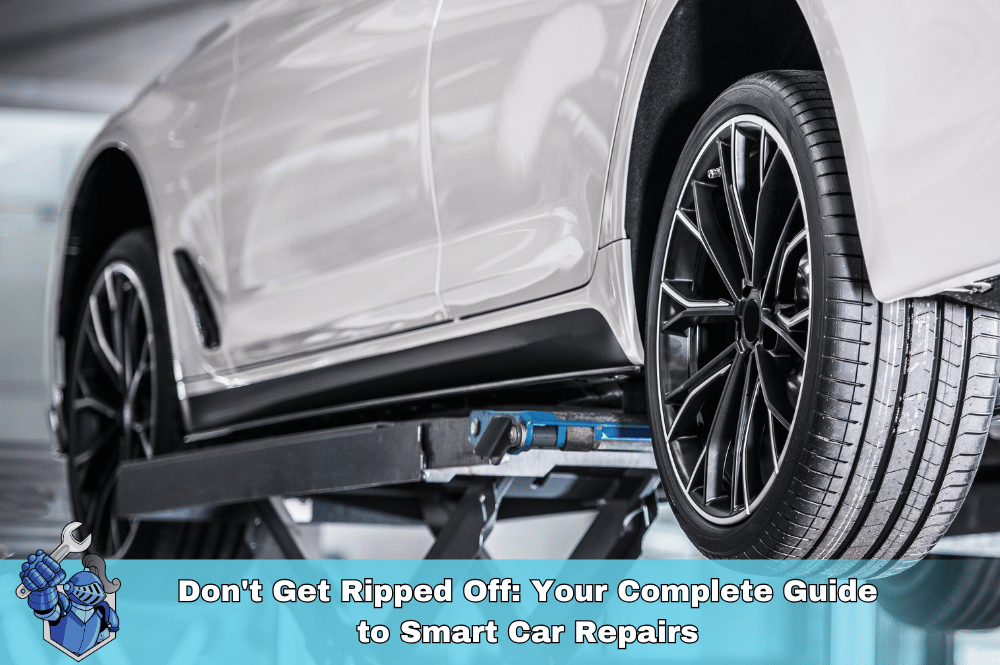
 Kia Telluride Review: Unpacking the Features and the Real Cost to Own
Kia Telluride Review: Unpacking the Features and the Real Cost to Own Decoding Your Wallet: The Benefits of Using Cash and Credit Wisely
Decoding Your Wallet: The Benefits of Using Cash and Credit Wisely Bitcoin vs. Cash: A Head-to-Head Comparison of Features
Bitcoin vs. Cash: A Head-to-Head Comparison of Features Beyond the Hype: A Realistic Look at Hyundai Ioniq 5 Ownership Costs and Performance
Beyond the Hype: A Realistic Look at Hyundai Ioniq 5 Ownership Costs and Performance Unlock Better Opportunities: Your Guide to Understanding and Improving Your Credit Score
Unlock Better Opportunities: Your Guide to Understanding and Improving Your Credit Score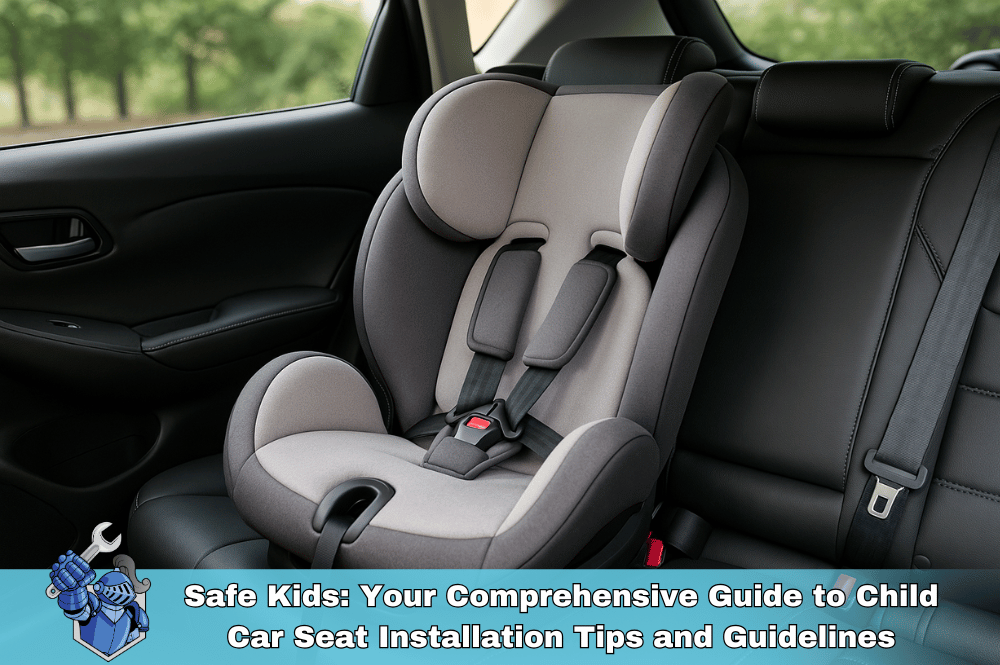 Safe Kids: Your Comprehensive Guide to Child Car Seat Installation Tips and Guidelines
Safe Kids: Your Comprehensive Guide to Child Car Seat Installation Tips and Guidelines Don’t Let Tariffs Hike Your Bills: The Smart Way an Extended Warranty Saves You on Car Repairs
Don’t Let Tariffs Hike Your Bills: The Smart Way an Extended Warranty Saves You on Car Repairs Chevy Colorado: Unpacking the Features and the Real Cost of Ownership
Chevy Colorado: Unpacking the Features and the Real Cost of Ownership Drive Smart, Save Smarter: Your Guide to Budgeting for Car Care
Drive Smart, Save Smarter: Your Guide to Budgeting for Car Care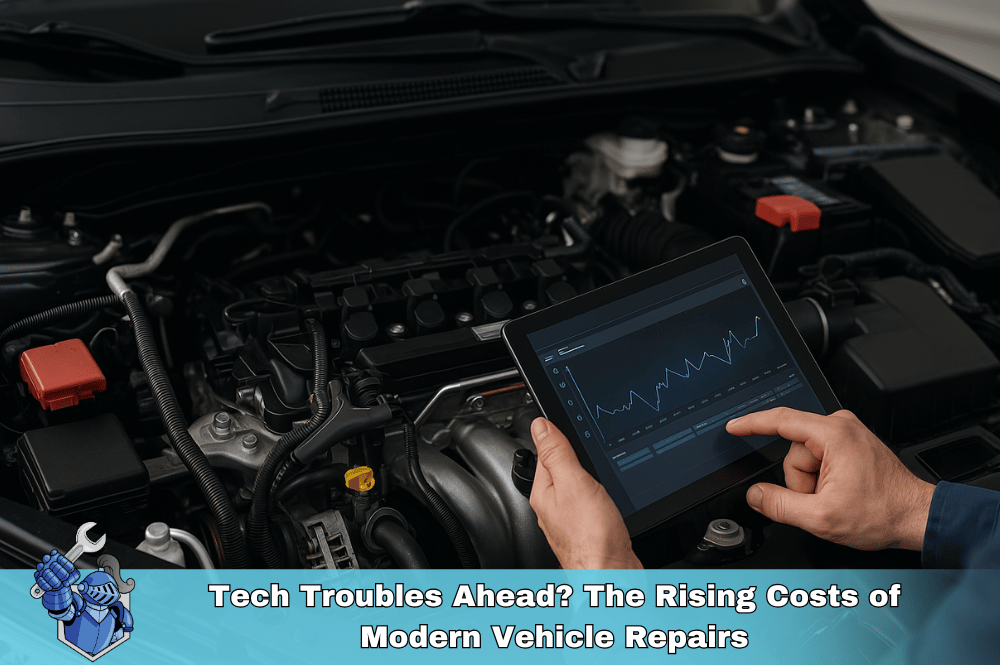 Tech Troubles Ahead? The Rising Costs of Modern Vehicle Repairs
Tech Troubles Ahead? The Rising Costs of Modern Vehicle Repairs DIY Danger? The Financial Risks of Handling Car Repairs Yourself
DIY Danger? The Financial Risks of Handling Car Repairs Yourself The Downtime Trap: How Car Repairs Can Cost You More Than Just the Bill
The Downtime Trap: How Car Repairs Can Cost You More Than Just the Bill Smart Buyer’s Guide: Ford F-250 Review and Long-Term Ownership Costs (2022–2024)
Smart Buyer’s Guide: Ford F-250 Review and Long-Term Ownership Costs (2022–2024) Depreciation Demystified: Planning for Your Car’s Future Value
Depreciation Demystified: Planning for Your Car’s Future Value New vs. Used: A Financial Showdown for Your Next Vehicle
New vs. Used: A Financial Showdown for Your Next Vehicle Blockchain Basics: The Technology Behind Cryptocurrencies
Blockchain Basics: The Technology Behind Cryptocurrencies Beyond Self-Driving: OpenAI and the Next Generation of Automotive Intelligence
Beyond Self-Driving: OpenAI and the Next Generation of Automotive Intelligence Living with a Legend: The Hidden Costs of Dodge Challenger Hellcat Ownership
Living with a Legend: The Hidden Costs of Dodge Challenger Hellcat Ownership The Crypto Long Game: Proven Strategies for Building Generational Wealth
The Crypto Long Game: Proven Strategies for Building Generational Wealth Family First, Finances Second? The Real Cost of Owning a Toyota Highlander
Family First, Finances Second? The Real Cost of Owning a Toyota Highlander Understanding Car Leasing: A Complete Guide for First-Timers
Understanding Car Leasing: A Complete Guide for First-Timers The EV Territory Wars: US Automakers Fight for Survival
The EV Territory Wars: US Automakers Fight for Survival Drive Away Richer? Credit Card Secrets for Smart Car Buying
Drive Away Richer? Credit Card Secrets for Smart Car Buying From Solid Axle to Supercar: The Ultimate Guide to Every Corvette Generation (C1–C8)
From Solid Axle to Supercar: The Ultimate Guide to Every Corvette Generation (C1–C8) Beyond the Movie: The Gritty Truth of Ford vs. Ferrari
Beyond the Movie: The Gritty Truth of Ford vs. Ferrari Hello, Robot Neighbor: The Dawn of Everyday AI and Its Impact
Hello, Robot Neighbor: The Dawn of Everyday AI and Its Impact Slash Your Car Insurance Bills: Expert Tips You Need Now
Slash Your Car Insurance Bills: Expert Tips You Need Now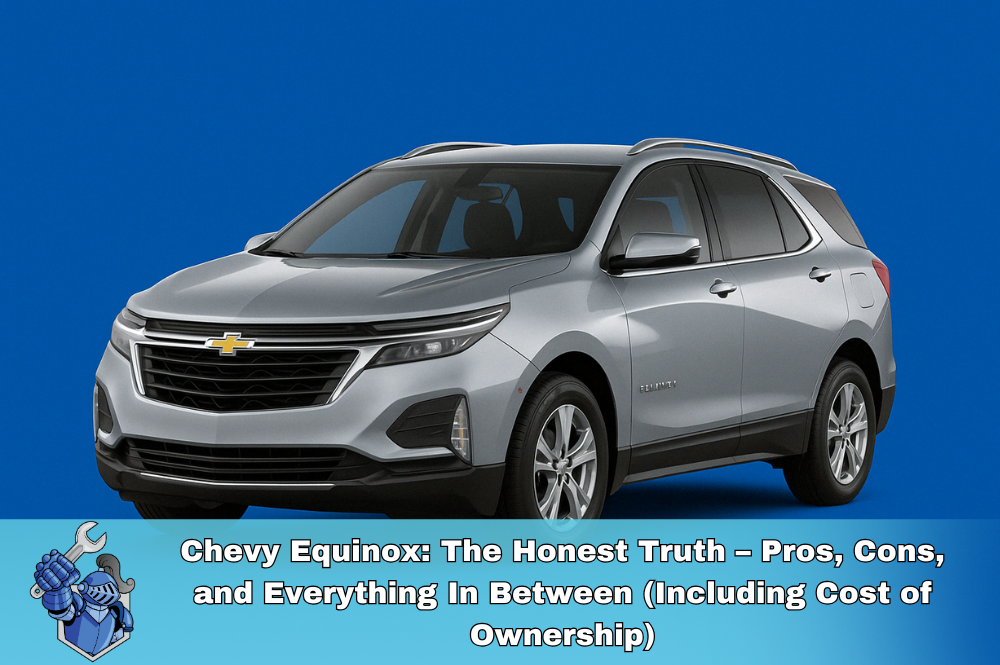 Chevy Equinox: The Honest Truth – Pros, Cons, and Everything In Between (Including Cost of Ownership)
Chevy Equinox: The Honest Truth – Pros, Cons, and Everything In Between (Including Cost of Ownership) Decoding Auto Insurance: Your Easy-to-Understand Guide
Decoding Auto Insurance: Your Easy-to-Understand Guide Pessada Holdings: BBB A+ Rated Excellence
Pessada Holdings: BBB A+ Rated Excellence Save More, Stress Less: Family Budgeting Tips That Work
Save More, Stress Less: Family Budgeting Tips That Work Slate’s Electric Entry: A Deep Dive into the New Automotive Truck
Slate’s Electric Entry: A Deep Dive into the New Automotive Truck Affordability Crisis: How Rising Costs are Putting the Brakes on Car Sales
Affordability Crisis: How Rising Costs are Putting the Brakes on Car Sales The Extended Warranty Pitch: What Dealers Don't Always Tell You
The Extended Warranty Pitch: What Dealers Don't Always Tell You The Ultimate Guide to Scoring a Great Deal on a Used Car
The Ultimate Guide to Scoring a Great Deal on a Used Car Unlock Your Dream Ride: The Ultimate Guide to Scoring a New Car Deal
Unlock Your Dream Ride: The Ultimate Guide to Scoring a New Car Deal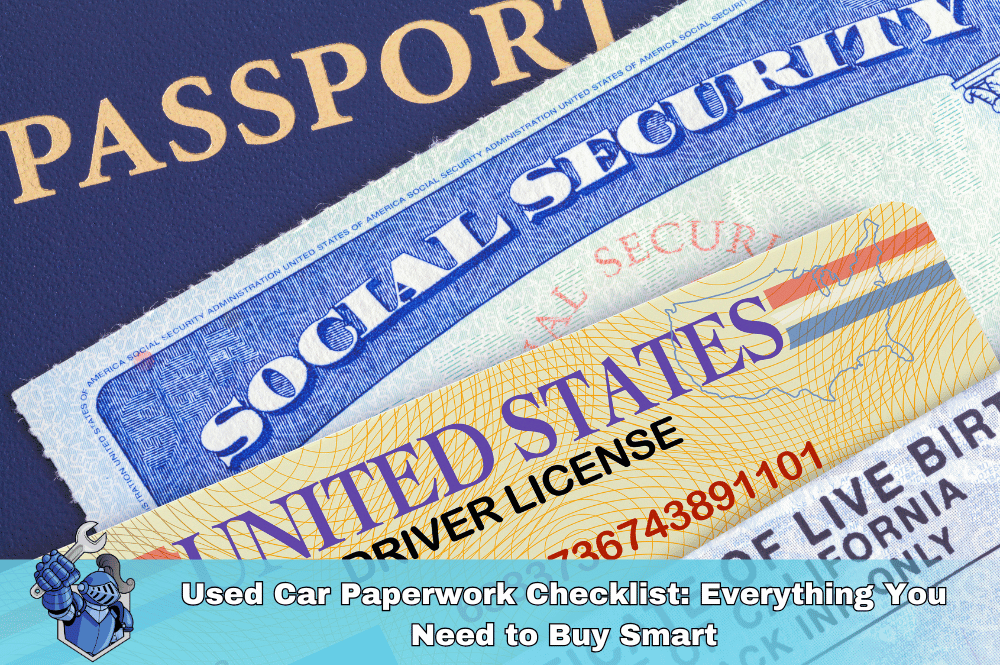 Used Car Paperwork Checklist: Everything You Need to Buy Smart
Used Car Paperwork Checklist: Everything You Need to Buy Smart Decoding “As-Is”: Your Essential Guide to Buying a Used Car
Decoding “As-Is”: Your Essential Guide to Buying a Used Car Cars.com: Your All-in-One Guide to Buying, Selling, and Owning Cars
Cars.com: Your All-in-One Guide to Buying, Selling, and Owning Cars Allstate Auto Insurance: A Comprehensive Review
Allstate Auto Insurance: A Comprehensive Review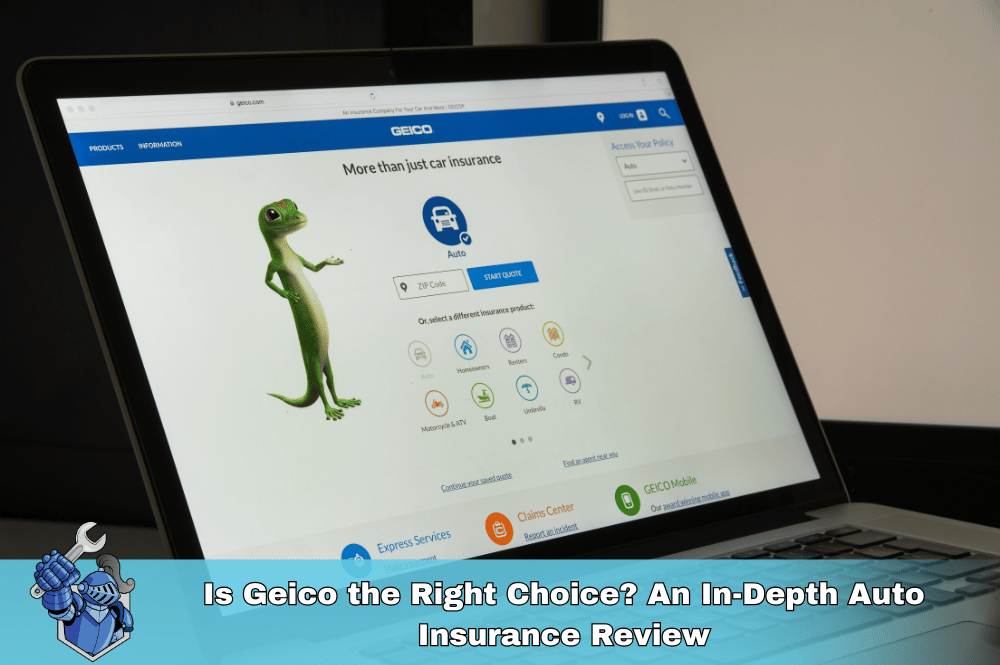 Is Geico the Right Choice? An In-Depth Auto Insurance Review
Is Geico the Right Choice? An In-Depth Auto Insurance Review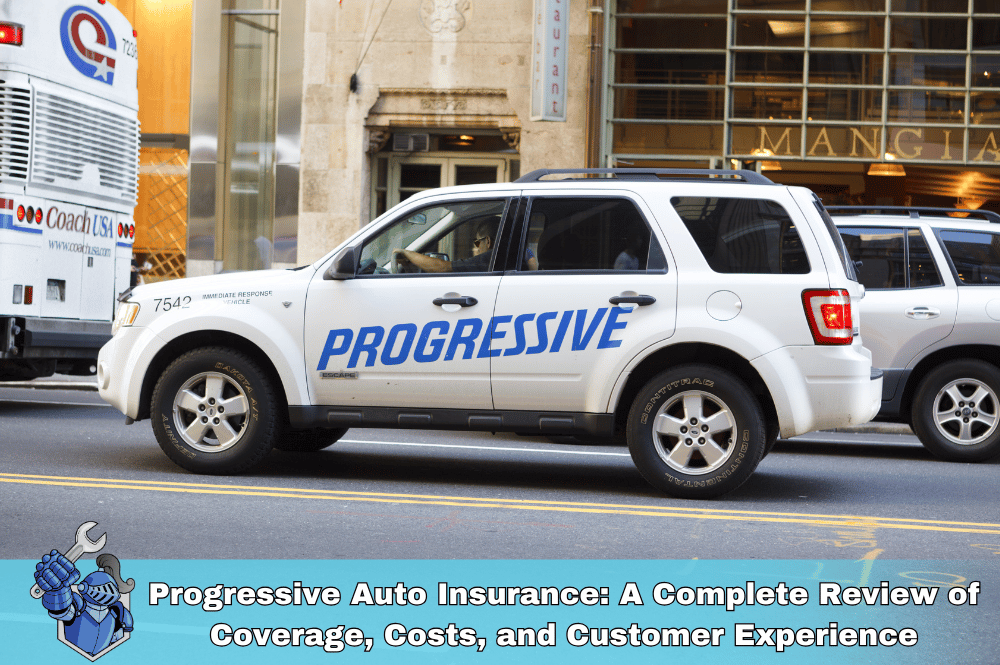 Progressive Auto Insurance: A Complete Review of Coverage, Costs, and Customer Experience
Progressive Auto Insurance: A Complete Review of Coverage, Costs, and Customer Experience Carfax: Unlocking a Vehicle's History – Is It Worth It?
Carfax: Unlocking a Vehicle's History – Is It Worth It? The Trusted Choice: A Comprehensive Look at NAPA AutoCare Center Services
The Trusted Choice: A Comprehensive Look at NAPA AutoCare Center Services Mazda Miata: Unpacking the Thrills and the Real Cost of Ownership
Mazda Miata: Unpacking the Thrills and the Real Cost of Ownership Online Car Shopping vs. Dealerships: Which Road Should You Take?
Online Car Shopping vs. Dealerships: Which Road Should You Take?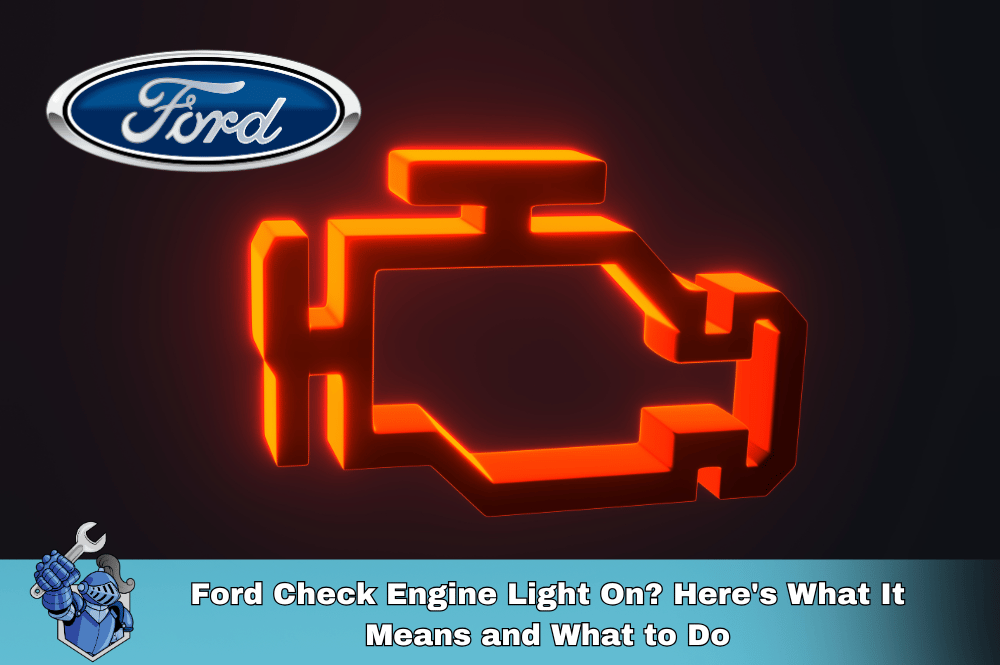 Ford Check Engine Light On? Here's What It Means and What to Do
Ford Check Engine Light On? Here's What It Means and What to Do The Hidden Risks of Buy Here Pay Here Car Dealerships
The Hidden Risks of Buy Here Pay Here Car Dealerships USAA Auto Insurance Review: The Complete In’s and Out’s (2025 Edition)
USAA Auto Insurance Review: The Complete In’s and Out’s (2025 Edition) Is an AARP Membership Worth It for Drivers?
Is an AARP Membership Worth It for Drivers? The Basics of Car Insurance Deductibles and How They Work
The Basics of Car Insurance Deductibles and How They Work Navigating Bank of America Auto Loans: What You Need to Know
Navigating Bank of America Auto Loans: What You Need to Know 5 Steps to a Higher Credit Score: Your Guide to Better Auto Loan Rates
5 Steps to a Higher Credit Score: Your Guide to Better Auto Loan Rates The General Auto Insurance: What You Need to Know
The General Auto Insurance: What You Need to Know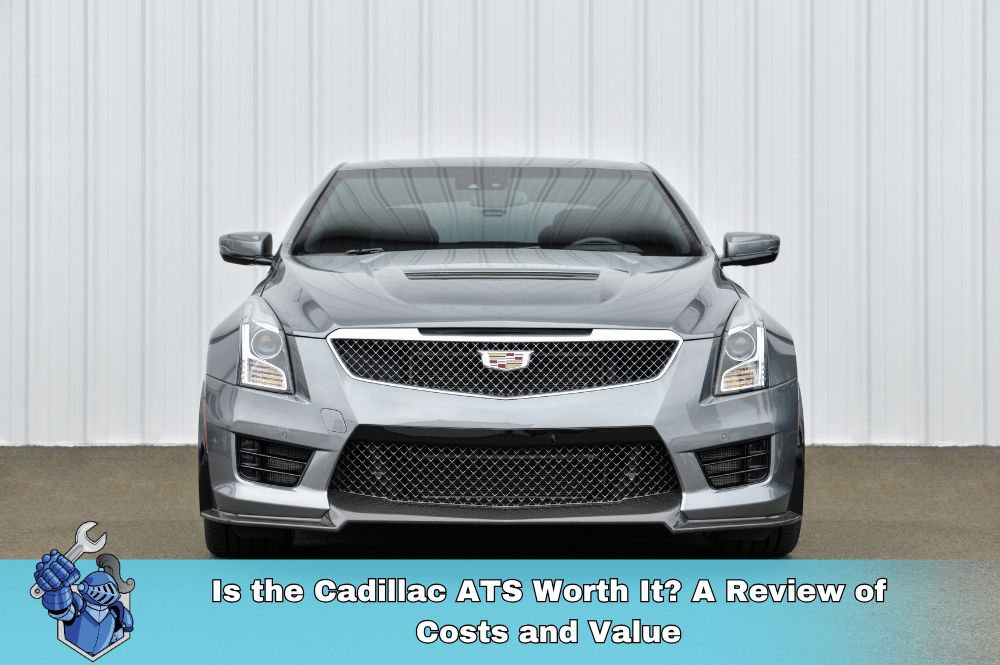 Is the Cadillac ATS Worth It? A Review of Costs and Value
Is the Cadillac ATS Worth It? A Review of Costs and Value Capital One Auto Loans: Your Complete Guide to Financing Your Next Vehicle
Capital One Auto Loans: Your Complete Guide to Financing Your Next Vehicle The Ultimate Guide to Selling Your Car
The Ultimate Guide to Selling Your Car Nationwide Auto Insurance: 10 Essential Things to Know Before You Buy
Nationwide Auto Insurance: 10 Essential Things to Know Before You Buy The Digital Garage for Your Dollars: Navigating the World of Trading Apps
The Digital Garage for Your Dollars: Navigating the World of Trading Apps Lost Keys? Noble Quote Has You Covered (and More!)
Lost Keys? Noble Quote Has You Covered (and More!) The True Cost of Owning a G80 BMW M3: Beyond the Sticker Price
The True Cost of Owning a G80 BMW M3: Beyond the Sticker Price O'Reilly Auto Parts: Your Comprehensive Guide to Services, Products, and More
O'Reilly Auto Parts: Your Comprehensive Guide to Services, Products, and More Land Cruiser 2025: Unleashed & Uncosted!
Land Cruiser 2025: Unleashed & Uncosted! Noble Quote vs. Amber: Which Automotive Service Offers the Best Value?
Noble Quote vs. Amber: Which Automotive Service Offers the Best Value? Unlock Lower Rates: Your Guide to Travelers Auto Insurance Discounts
Unlock Lower Rates: Your Guide to Travelers Auto Insurance Discounts Porsche Macan: The REAL Cost of Ownership (2015–2024 Review)
Porsche Macan: The REAL Cost of Ownership (2015–2024 Review) Land Rover Evoque Review (2012–2024): True Cost of Ownership Revealed
Land Rover Evoque Review (2012–2024): True Cost of Ownership Revealed Your Car as an NFT? The Future of Automotive Ownership on Ethereum
Your Car as an NFT? The Future of Automotive Ownership on Ethereum Unlock Cheaper Rates: Your Ultimate Guide to State Farm Auto Insurance Discounts
Unlock Cheaper Rates: Your Ultimate Guide to State Farm Auto Insurance Discounts Online Used Car Shopping: What You NEED to Know Before You Buy
Online Used Car Shopping: What You NEED to Know Before You Buy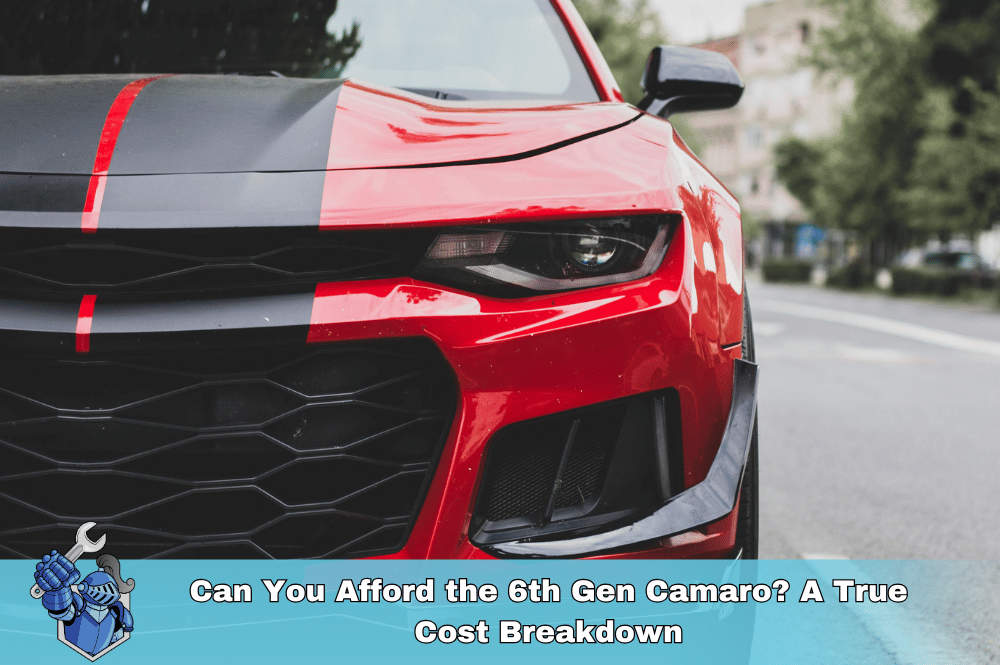 Can You Afford the 6th Gen Camaro? A True Cost Breakdown
Can You Afford the 6th Gen Camaro? A True Cost Breakdown The 7 Hidden Costs of Skipping Your Extended Car Warranty
The 7 Hidden Costs of Skipping Your Extended Car Warranty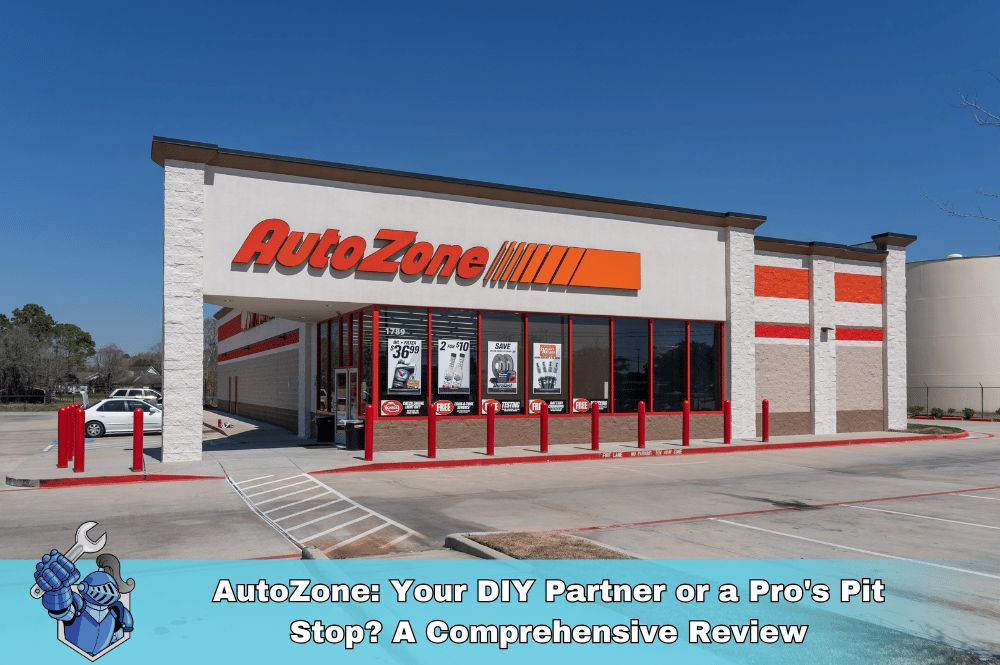 AutoZone: Your DIY Partner or a Pro's Pit Stop? A Comprehensive Review
AutoZone: Your DIY Partner or a Pro's Pit Stop? A Comprehensive Review Reborn Rugged: Why the Ineos Grenadier is More Than Just an SUV
Reborn Rugged: Why the Ineos Grenadier is More Than Just an SUV Factors Affecting Your Car Insurance Rates: The Ultimate Guide to Understanding Costs
Factors Affecting Your Car Insurance Rates: The Ultimate Guide to Understanding Costs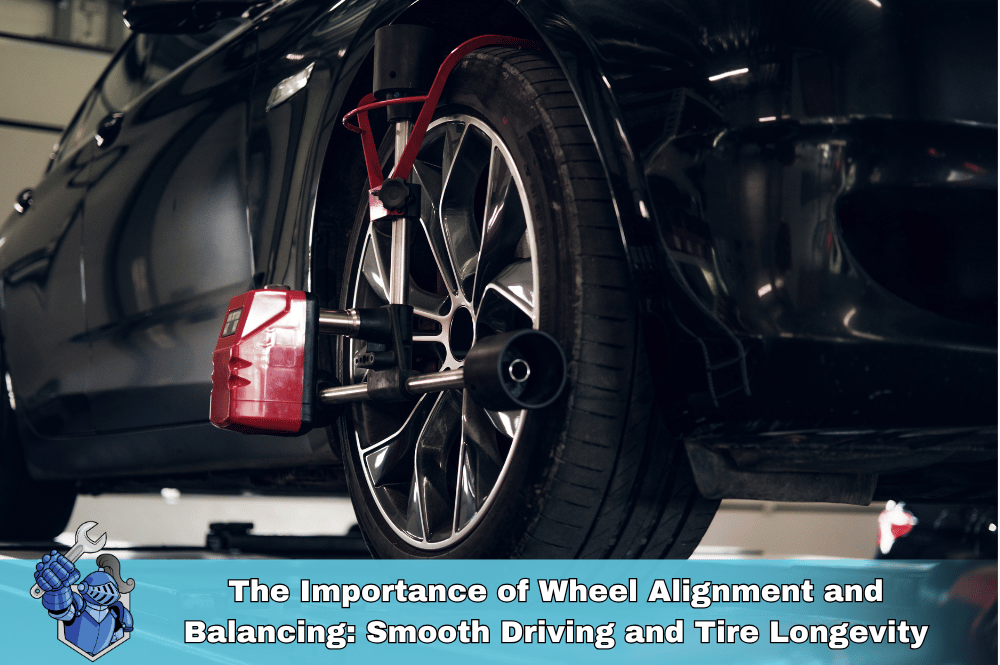 The Importance of Wheel Alignment and Balancing: Smooth Driving and Tire Longevity
The Importance of Wheel Alignment and Balancing: Smooth Driving and Tire Longevity How to Maximize Your Car Trade-In Value: The Ultimate Guide
How to Maximize Your Car Trade-In Value: The Ultimate Guide BYD Cars 2025: Your Ultimate Guide to the Full Lineup & Latest Innovations
BYD Cars 2025: Your Ultimate Guide to the Full Lineup & Latest Innovations Don't Miss Out: How to Buy Crypto Before the Next FOMO Wave (2025 Guide)
Don't Miss Out: How to Buy Crypto Before the Next FOMO Wave (2025 Guide) Farmers Auto Insurance: Your Ultimate 2025 Guide to Coverage, Rates & Savings
Farmers Auto Insurance: Your Ultimate 2025 Guide to Coverage, Rates & Savings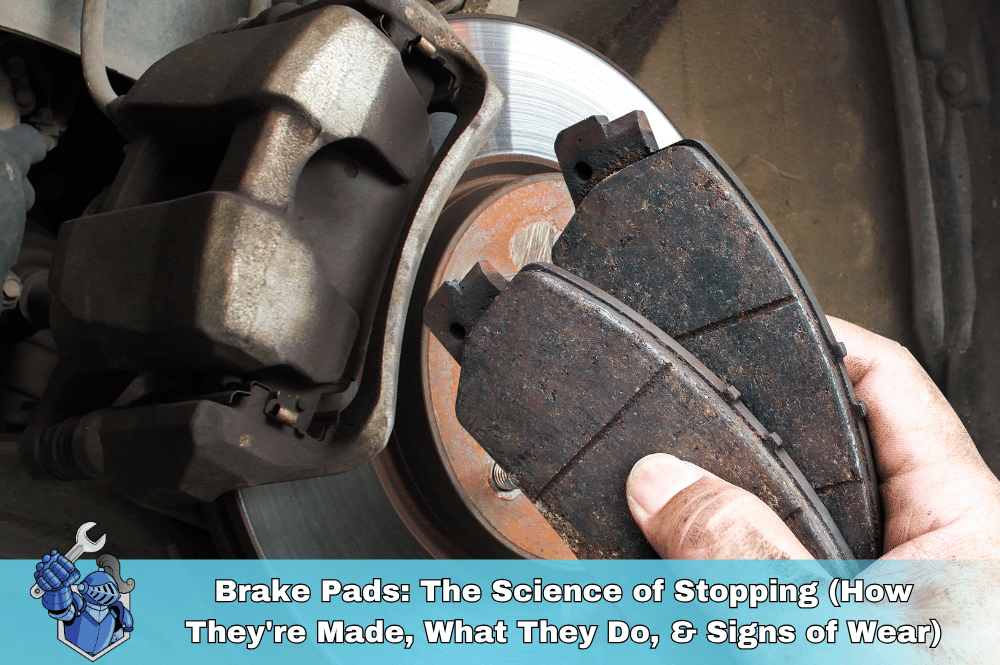 Brake Pads: The Science of Stopping (How They're Made, What They Do, & Signs of Wear)
Brake Pads: The Science of Stopping (How They're Made, What They Do, & Signs of Wear) The Ultimate Showdown: Car Broker vs. DIY Car Buying – Which Path Saves You More?
The Ultimate Showdown: Car Broker vs. DIY Car Buying – Which Path Saves You More?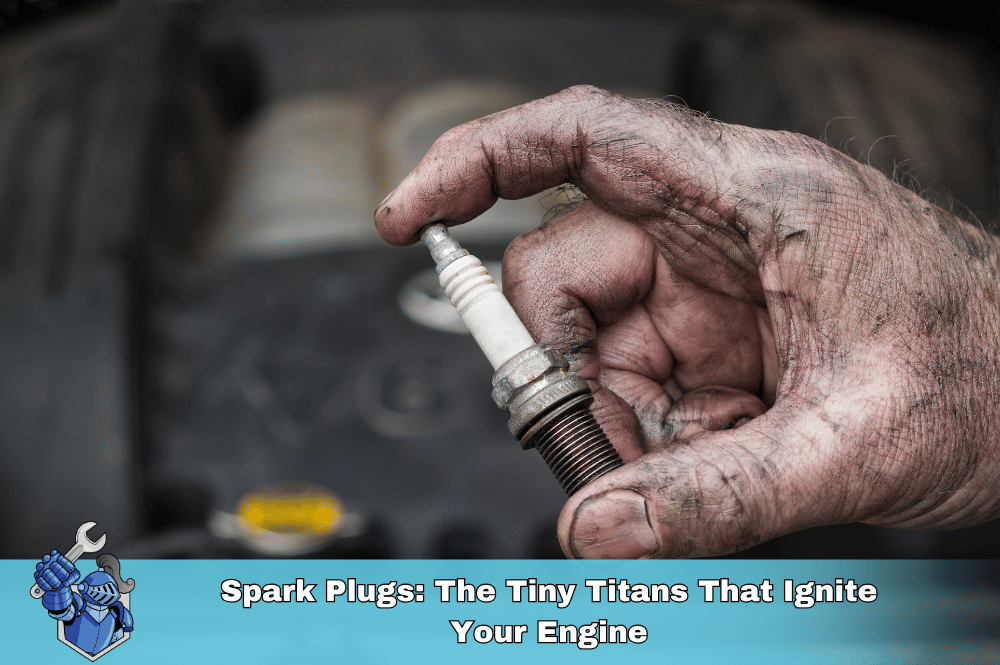 Spark Plugs: The Tiny Titans That Ignite Your Engine
Spark Plugs: The Tiny Titans That Ignite Your Engine Kelley Blue Book Instant Cash Offer: Your Ultimate Guide to Getting Top Dollar for Your Car
Kelley Blue Book Instant Cash Offer: Your Ultimate Guide to Getting Top Dollar for Your Car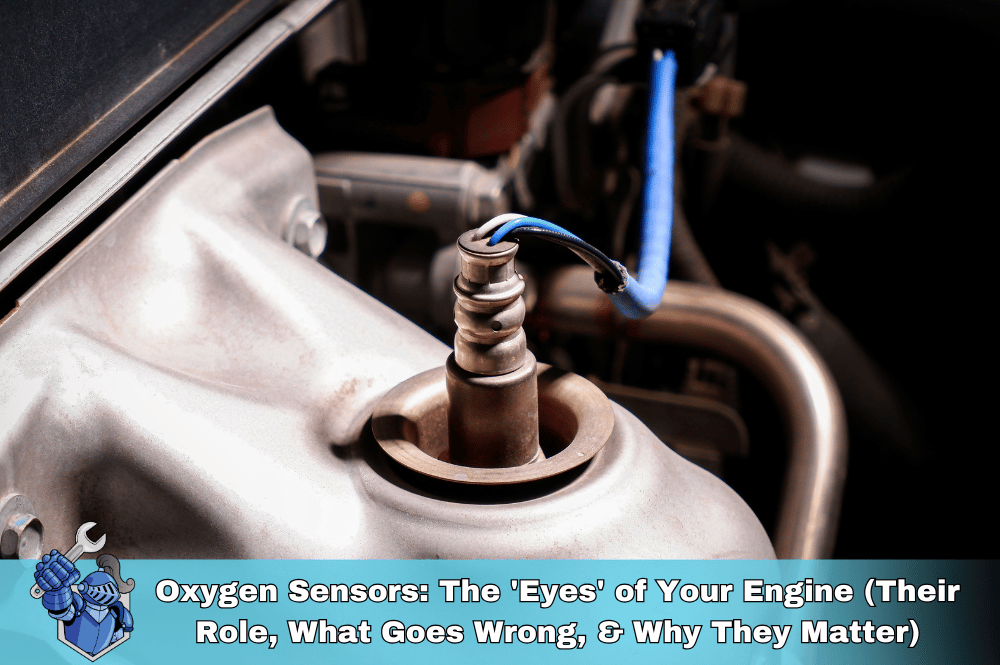 Oxygen Sensors: The 'Eyes' of Your Engine (Their Role, What Goes Wrong, & Why They Matter)
Oxygen Sensors: The 'Eyes' of Your Engine (Their Role, What Goes Wrong, & Why They Matter) Carvana vs. Traditional Dealerships: The Ultimate Showdown for Your Next Car Purchase
Carvana vs. Traditional Dealerships: The Ultimate Showdown for Your Next Car Purchase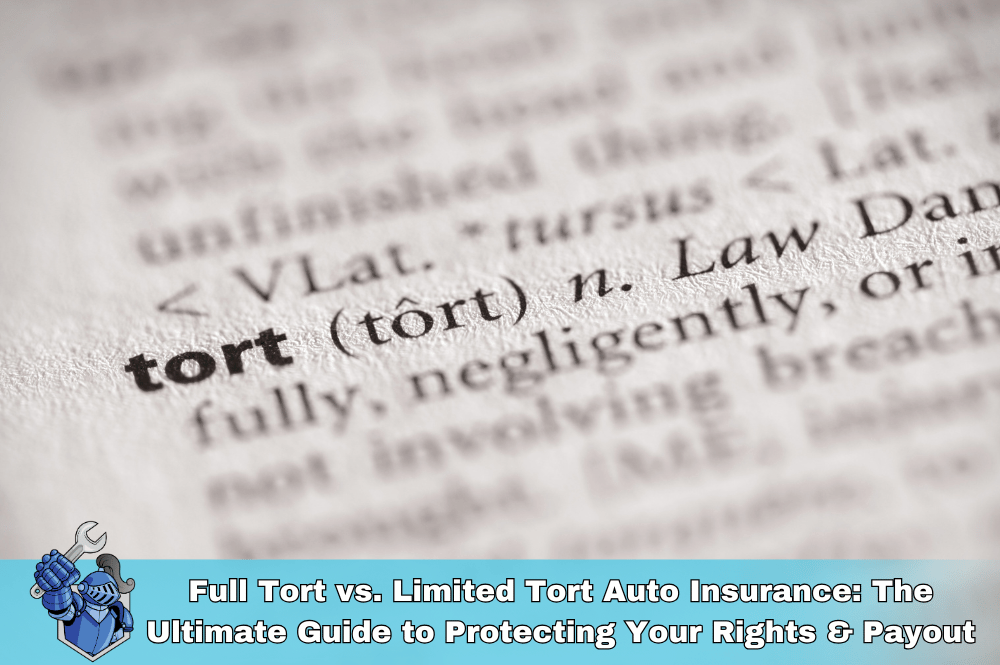 Full Tort vs. Limited Tort Auto Insurance: The Ultimate Guide to Protecting Your Rights & Payout
Full Tort vs. Limited Tort Auto Insurance: The Ultimate Guide to Protecting Your Rights & Payout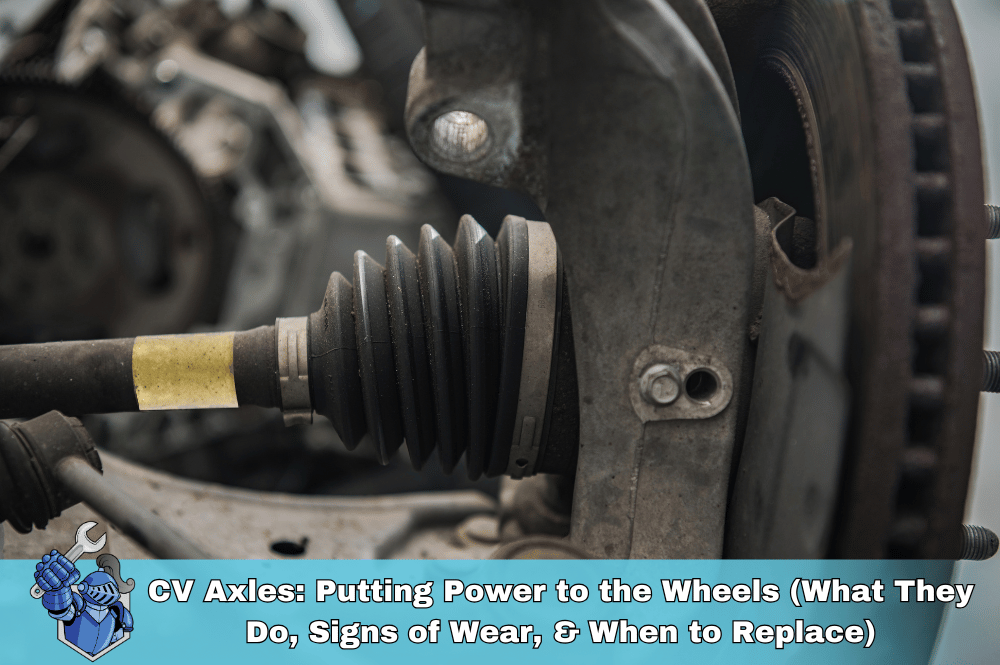 CV Axles: Putting Power to the Wheels (What They Do, Signs of Wear, & When to Replace)
CV Axles: Putting Power to the Wheels (What They Do, Signs of Wear, & When to Replace) DriveTime Review 2024/2025: Your Complete A–Z Guide to Buying a Car There
DriveTime Review 2024/2025: Your Complete A–Z Guide to Buying a Car There 10 Essential Car Prep Tips for Your Family’s Epic Summer Road Trips (2025 Edition)
10 Essential Car Prep Tips for Your Family’s Epic Summer Road Trips (2025 Edition) Rideshare Riches: How Much Can YOU Really Earn Driving for Uber & Lyft in 2025?
Rideshare Riches: How Much Can YOU Really Earn Driving for Uber & Lyft in 2025? The Car Computer (ECM/ECU): The Brain of Your Vehicle (Its Functions, Troubleshooting, & Updates)
The Car Computer (ECM/ECU): The Brain of Your Vehicle (Its Functions, Troubleshooting, & Updates) The Ultimate Truck/SUV Beach Driving Guide: Prep, Safety, & Post-Sand Care
The Ultimate Truck/SUV Beach Driving Guide: Prep, Safety, & Post-Sand Care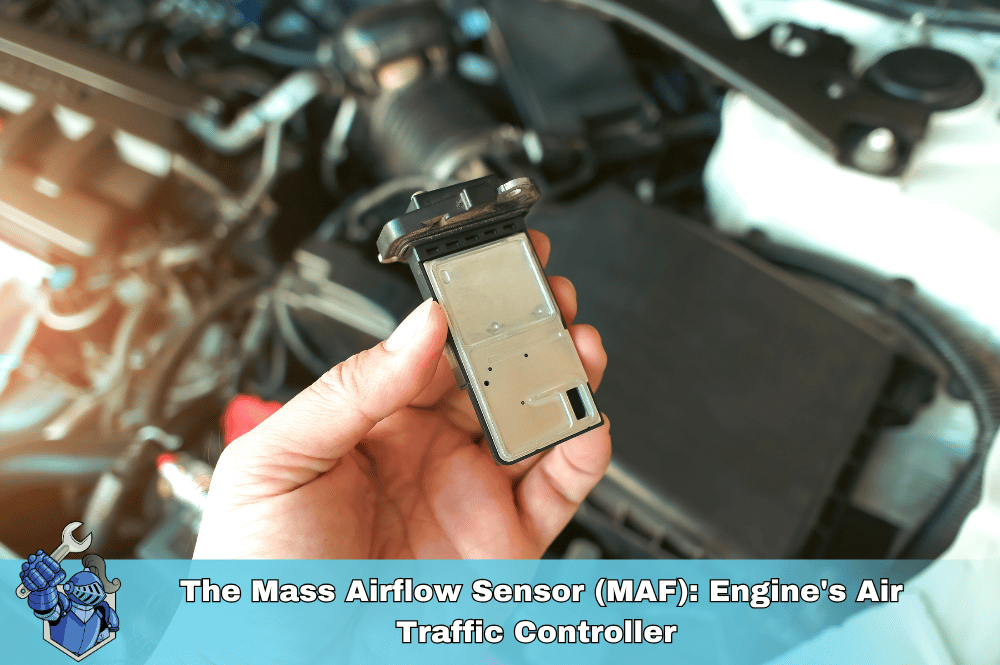 The Mass Airflow Sensor (MAF): Engine's Air Traffic Controller (Function, Symptoms of Failure, & Cleaning)
The Mass Airflow Sensor (MAF): Engine's Air Traffic Controller (Function, Symptoms of Failure, & Cleaning) The Reigning Champion: Why the 2025 Ford Ranger is North America's Truck of the Year
The Reigning Champion: Why the 2025 Ford Ranger is North America's Truck of the Year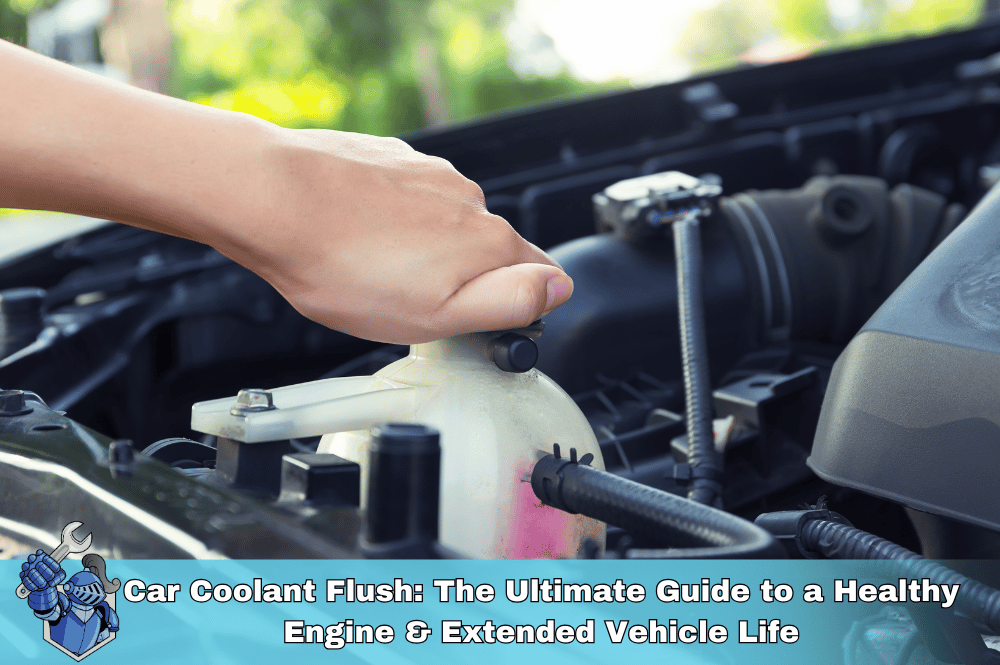 Car Coolant Flush: The Ultimate Guide to a Healthy Engine & Extended Vehicle Life
Car Coolant Flush: The Ultimate Guide to a Healthy Engine & Extended Vehicle Life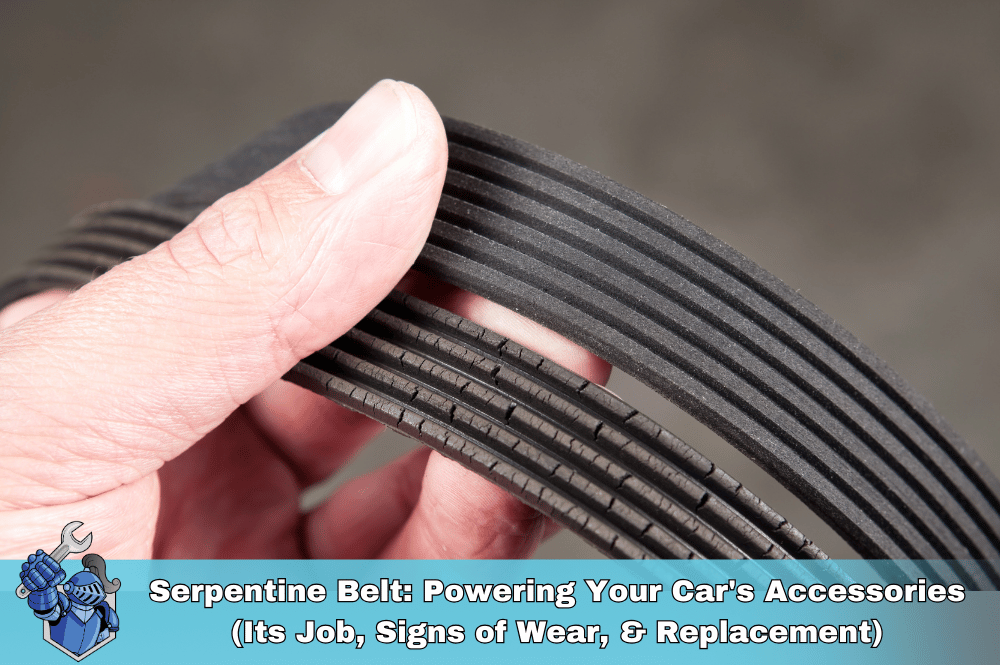 Serpentine Belt: Powering Your Car's Accessories (Its Job, Signs of Wear, & Replacement)
Serpentine Belt: Powering Your Car's Accessories (Its Job, Signs of Wear, & Replacement) BMW M2: The Pure Driving Machine Reborn?
BMW M2: The Pure Driving Machine Reborn? The Ultimate Protection Plan: How Life Insurance Drives Your Family’s Future
The Ultimate Protection Plan: How Life Insurance Drives Your Family’s Future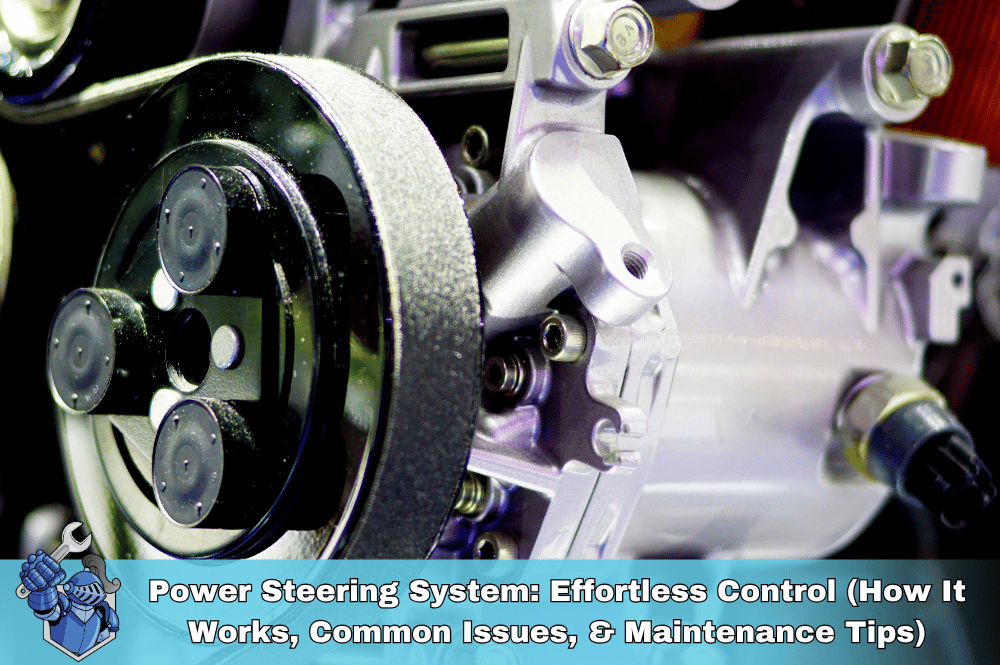 Power Steering System: Effortless Control (How It Works, Common Issues, & Maintenance Tips)
Power Steering System: Effortless Control (How It Works, Common Issues, & Maintenance Tips) End-of-Month Car Deals: Myth or Money-Saver?
End-of-Month Car Deals: Myth or Money-Saver? NobleQuote.com Presents: American National Auto Insurance – Your Complete Guide
NobleQuote.com Presents: American National Auto Insurance – Your Complete Guide Edmunds.com: Your Ultimate Guide to Smarter Car Buying
Edmunds.com: Your Ultimate Guide to Smarter Car Buying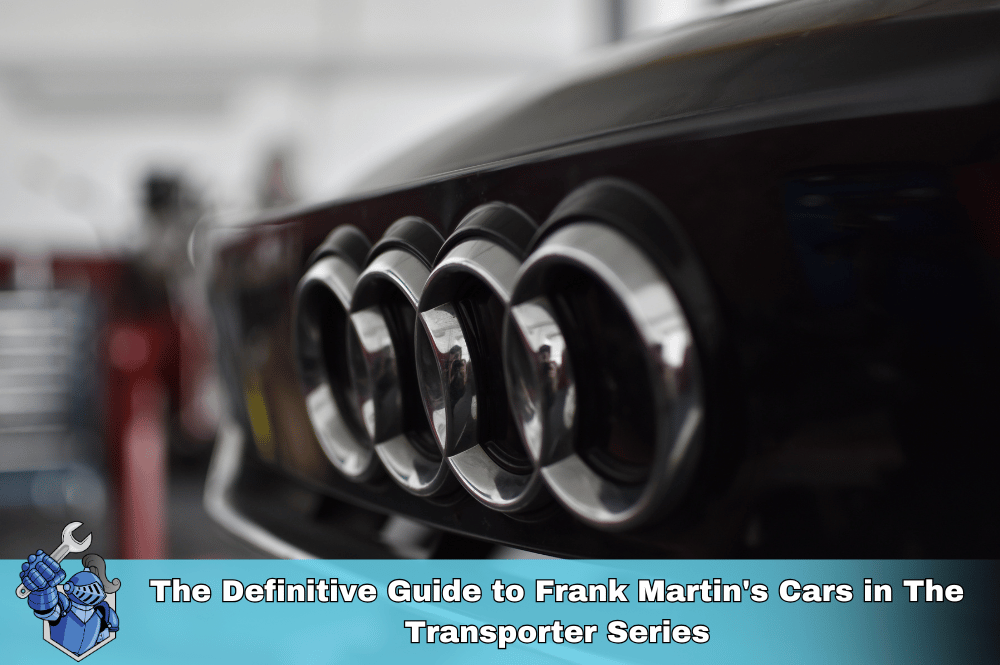 The Definitive Guide to Frank Martin's Cars in The Transporter Series
The Definitive Guide to Frank Martin's Cars in The Transporter Series Pre-Existing Conditions and Home Warranties: What You Need to Know Before You Buy
Pre-Existing Conditions and Home Warranties: What You Need to Know Before You Buy Why Your Car Insurance is Skyrocketing in 2025 (and How NobleQuote Can Help)
Why Your Car Insurance is Skyrocketing in 2025 (and How NobleQuote Can Help) The 2025 Toyota Supra: The Grand Finale of a Legend?
The 2025 Toyota Supra: The Grand Finale of a Legend?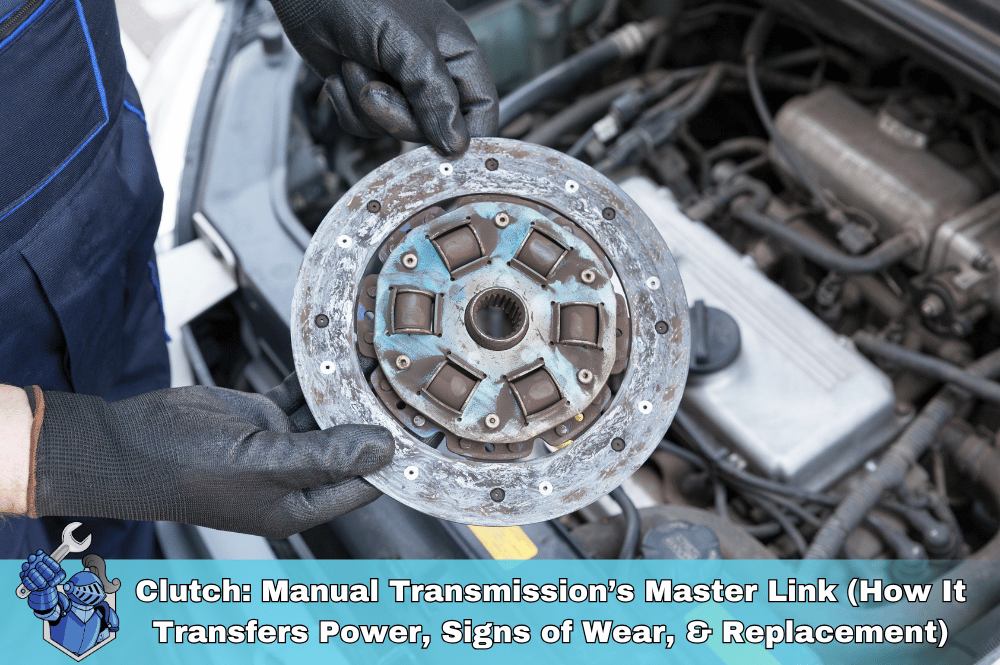 Clutch: Manual Transmission’s Master Link (How It Transfers Power, Signs of Wear, & Replacement)
Clutch: Manual Transmission’s Master Link (How It Transfers Power, Signs of Wear, & Replacement) Teen Driver Car Insurance Costs & Strategies: How to Get Affordable Coverage for Young Drivers
Teen Driver Car Insurance Costs & Strategies: How to Get Affordable Coverage for Young Drivers Is Your Car Insurance Enough? Unexpected Repairs and the Peace of Mind of a NobleQuote Vehicle Service Contract
Is Your Car Insurance Enough? Unexpected Repairs and the Peace of Mind of a NobleQuote Vehicle Service Contract Esurance Auto Insurance Review 2025: Is It the Right Digital Fit for Your Ride?
Esurance Auto Insurance Review 2025: Is It the Right Digital Fit for Your Ride?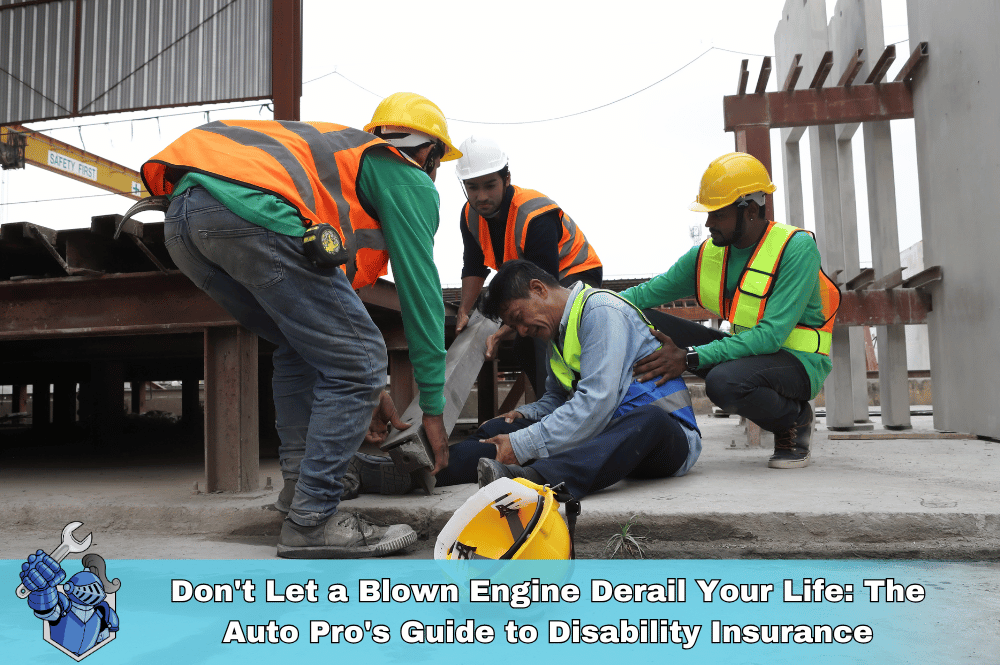 Don't Let a Blown Engine Derail Your Life: The Auto Pro's Guide to Disability Insurance
Don't Let a Blown Engine Derail Your Life: The Auto Pro's Guide to Disability Insurance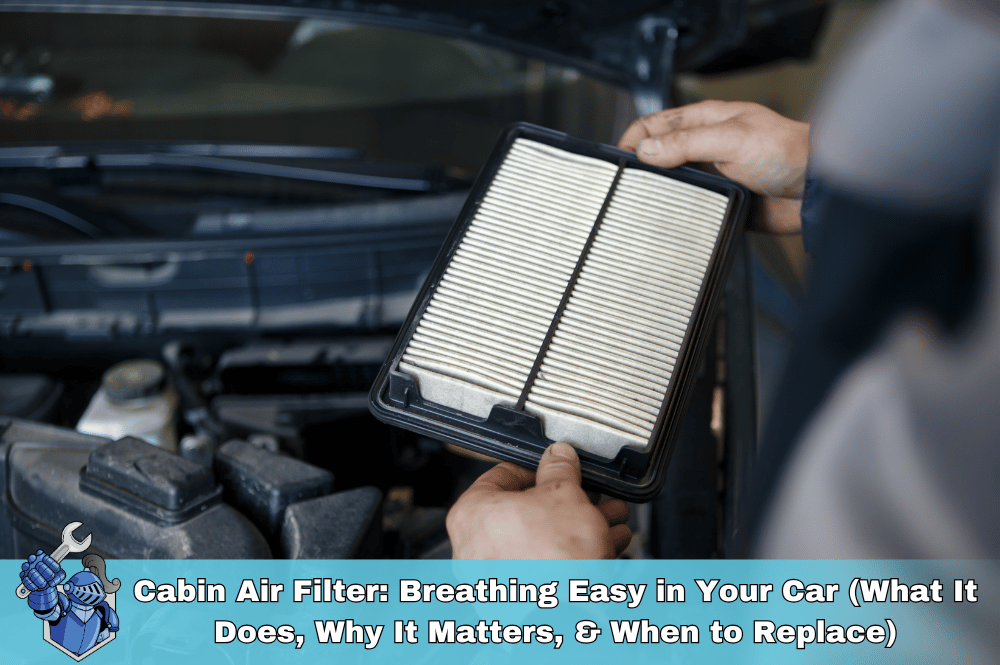 Cabin Air Filter: Breathing Easy in Your Car (What It Does, Why It Matters, & When to Replace)
Cabin Air Filter: Breathing Easy in Your Car (What It Does, Why It Matters, & When to Replace) Godzilla’s Reign: Unpacking the Legend of the 5th Gen Nissan GT-R
Godzilla’s Reign: Unpacking the Legend of the 5th Gen Nissan GT-R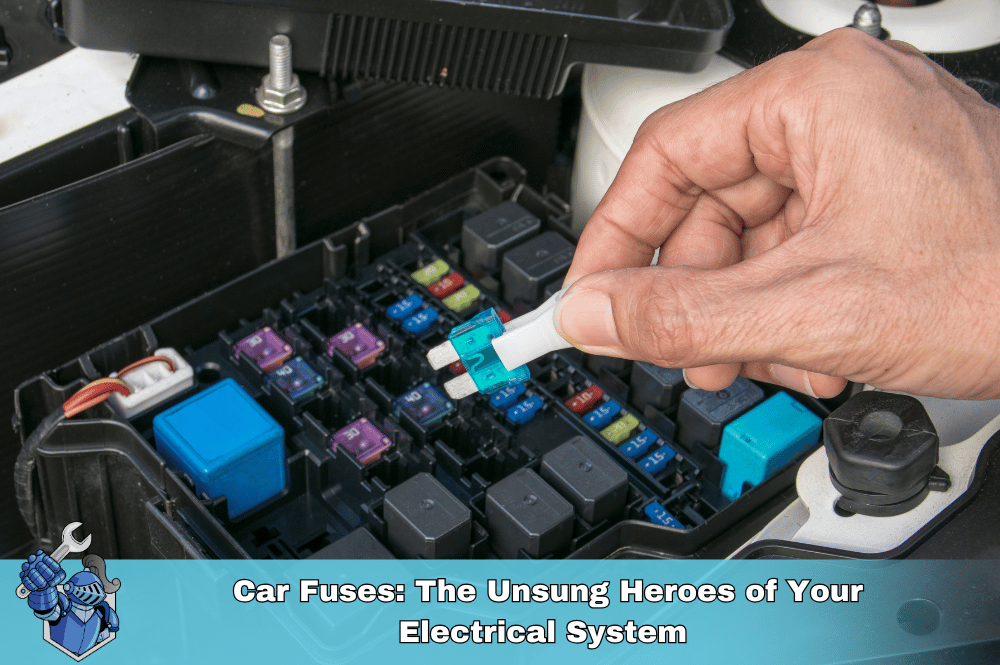 Car Fuses: The Unsung Heroes of Your Electrical System (What They Do, Common Failures, & How to Replace)
Car Fuses: The Unsung Heroes of Your Electrical System (What They Do, Common Failures, & How to Replace) Protect Your Ride & Your Family: Why Northwestern Mutual Life Insurance Matters for Car Owners
Protect Your Ride & Your Family: Why Northwestern Mutual Life Insurance Matters for Car Owners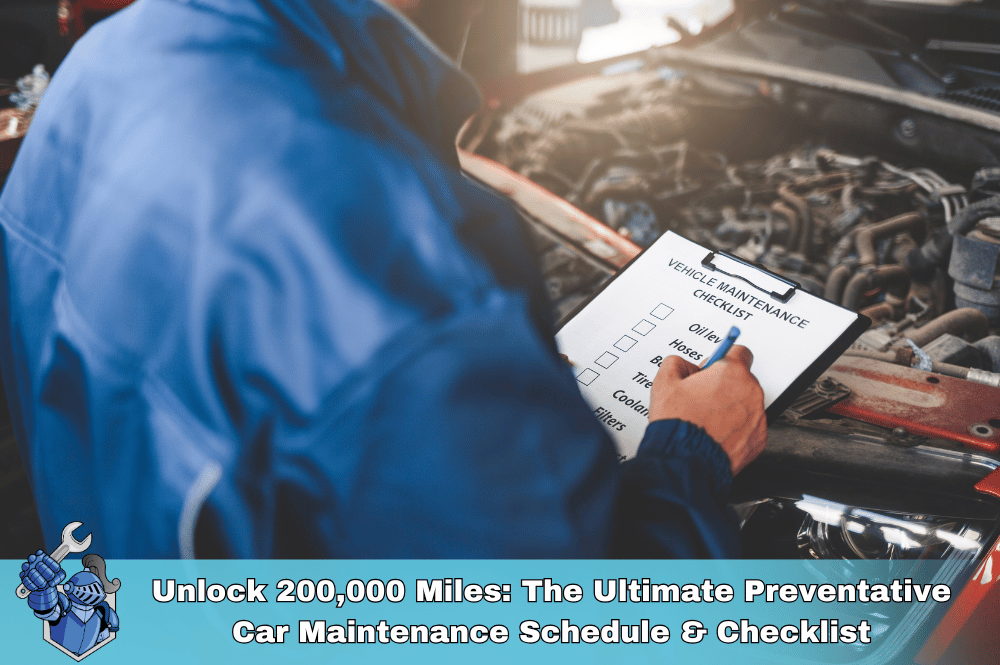 Unlock 200,000 Miles: The Ultimate Preventative Car Maintenance Schedule & Checklist
Unlock 200,000 Miles: The Ultimate Preventative Car Maintenance Schedule & Checklist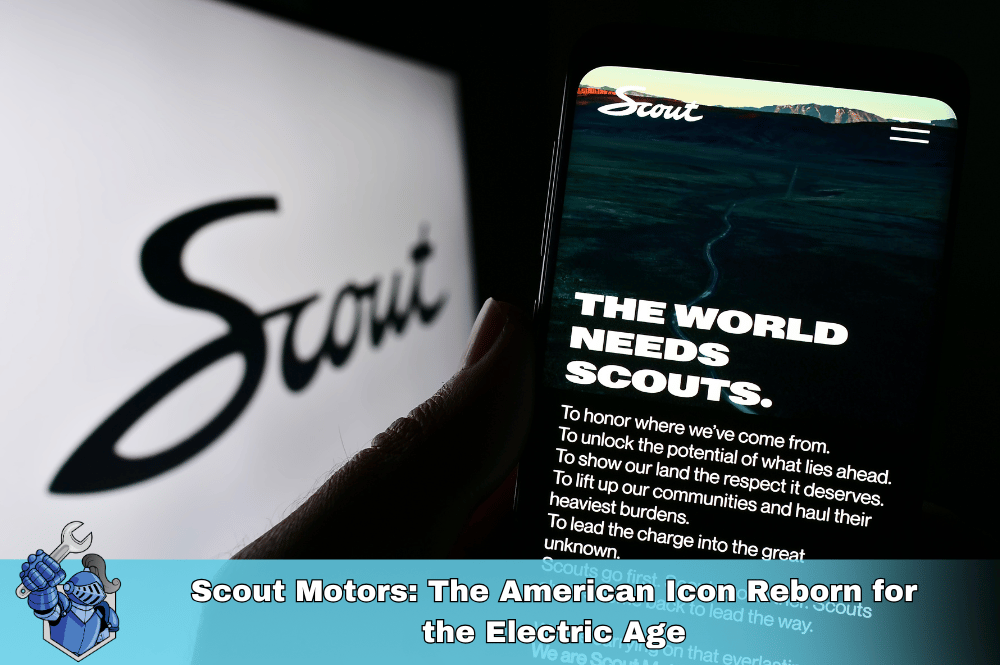 Scout Motors: The American Icon Reborn for the Electric Age
Scout Motors: The American Icon Reborn for the Electric Age How to Replace Wiper Blades: A Step-by-Step DIY Guide (Save Money & See Clearly!)
How to Replace Wiper Blades: A Step-by-Step DIY Guide (Save Money & See Clearly!) The Ultimate Guide to Cheap Car Insurance: Find Your Lowest Rates in 2025
The Ultimate Guide to Cheap Car Insurance: Find Your Lowest Rates in 2025 The 2025 Automotive Retirement Number: What Auto Pros Need to Save for a Comfortable Ride
The 2025 Automotive Retirement Number: What Auto Pros Need to Save for a Comfortable Ride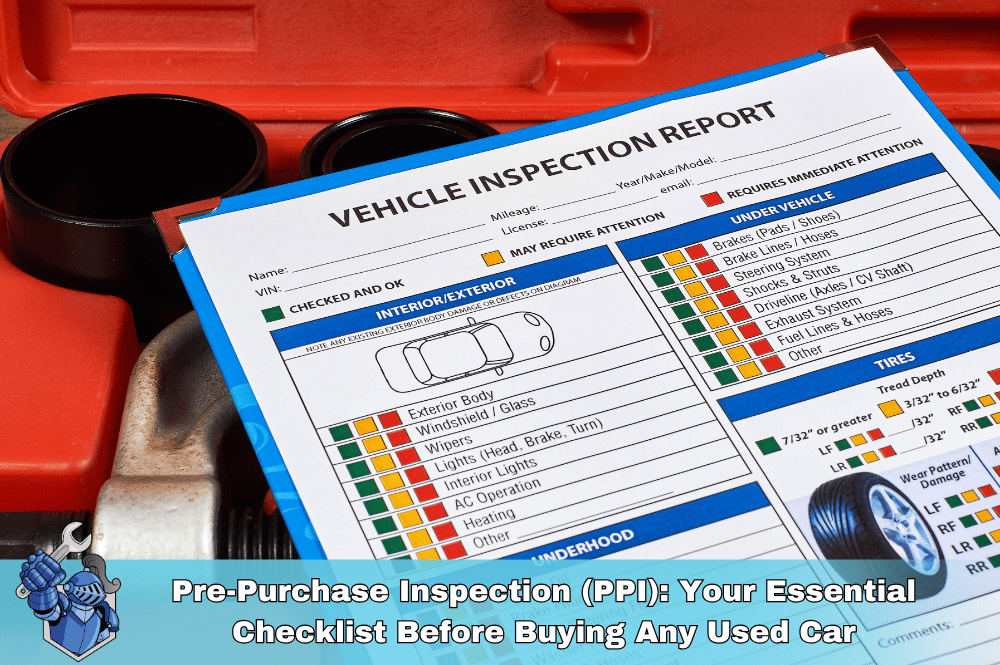 Pre-Purchase Inspection (PPI): Your Essential Checklist Before Buying Any Used Car
Pre-Purchase Inspection (PPI): Your Essential Checklist Before Buying Any Used Car Unearthing Automotive Gold: The Underrated Used Cars You Need to Buy Now
Unearthing Automotive Gold: The Underrated Used Cars You Need to Buy Now The Last Ride: Why the 2025 Audi A4 is the Ultimate Collectible (and Daily Driver)
The Last Ride: Why the 2025 Audi A4 is the Ultimate Collectible (and Daily Driver) 2025 Corvette ZR1: The Ultimate Guide to Specs, Price, and Performance
2025 Corvette ZR1: The Ultimate Guide to Specs, Price, and Performance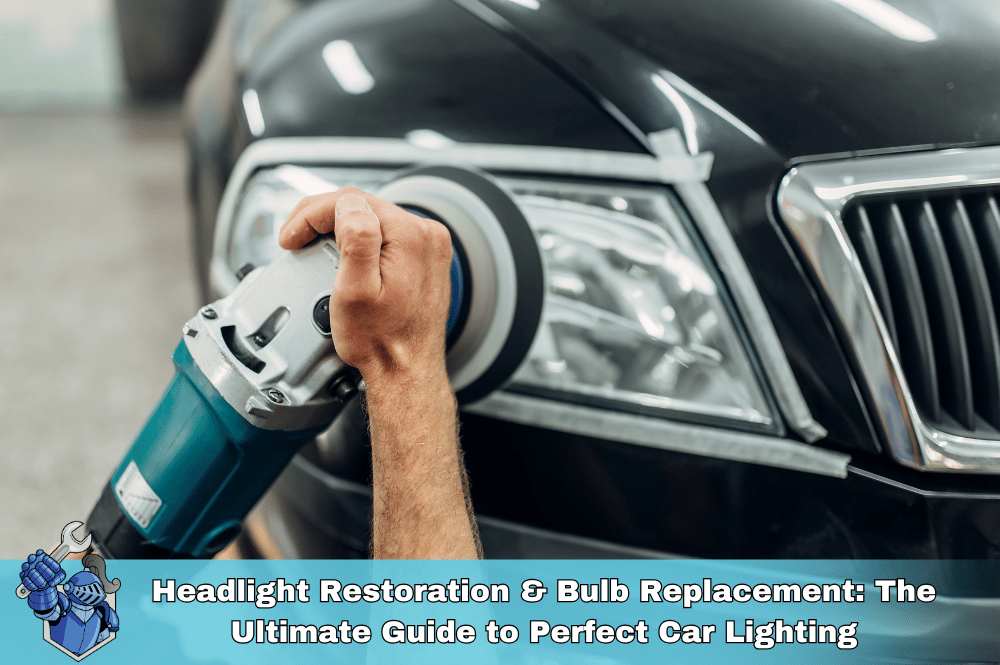 Headlight Restoration & Bulb Replacement: The Ultimate Guide to Perfect Car Lighting
Headlight Restoration & Bulb Replacement: The Ultimate Guide to Perfect Car Lighting Does Driving for Uber/Lyft/DoorDash Void Your Car’s Warranty? & How to Get Covered
Does Driving for Uber/Lyft/DoorDash Void Your Car’s Warranty? & How to Get Covered The Ultimate Guide to Motorcycle Extended Warranties: Is It Worth It for Your Ride?
The Ultimate Guide to Motorcycle Extended Warranties: Is It Worth It for Your Ride? 2025 BMW X7 vs. Mercedes-Benz GLS: Which Luxury SUV Reigns Supreme?
2025 BMW X7 vs. Mercedes-Benz GLS: Which Luxury SUV Reigns Supreme?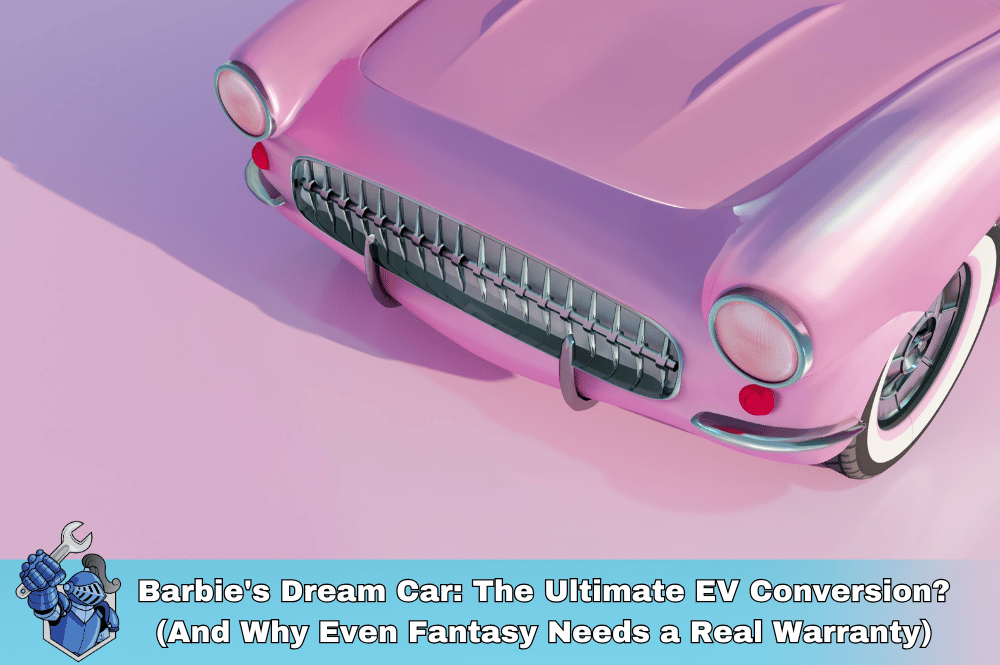 Barbie's Dream Car: The Ultimate EV Conversion? (And Why Even Fantasy Needs a Real Warranty)
Barbie's Dream Car: The Ultimate EV Conversion? (And Why Even Fantasy Needs a Real Warranty)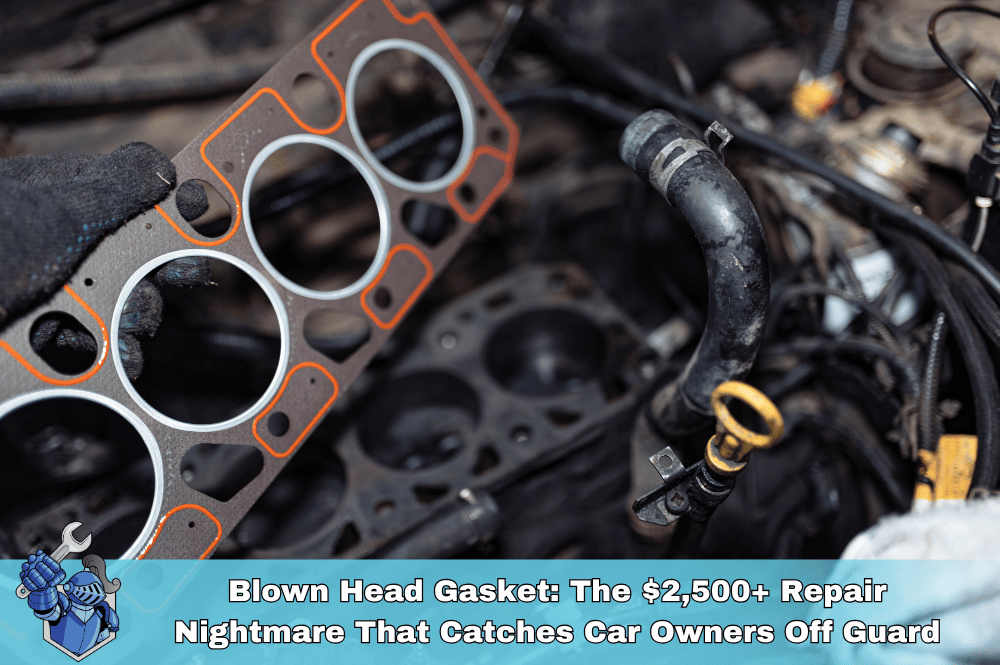 Blown Head Gasket: The $2,500+ Repair Nightmare That Catches Car Owners Off Guard – Learn How to Prepare
Blown Head Gasket: The $2,500+ Repair Nightmare That Catches Car Owners Off Guard – Learn How to Prepare 2025 Cadillac Lyriq Review: The Ultimate Luxury Electric SUV?
2025 Cadillac Lyriq Review: The Ultimate Luxury Electric SUV?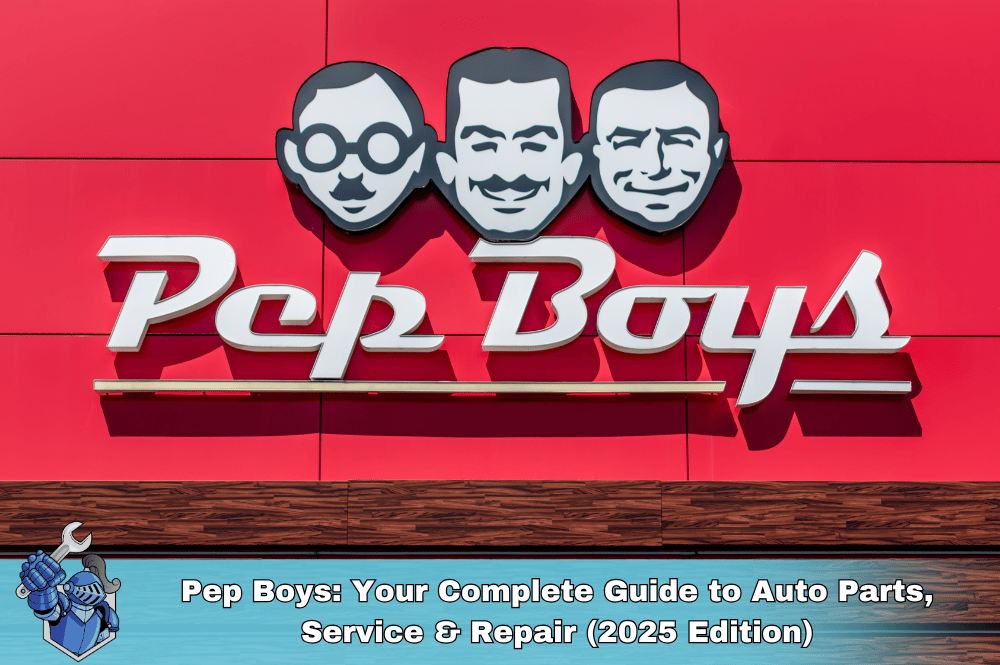 Pep Boys: Your Complete Guide to Auto Parts, Service & Repair (2025 Edition)
Pep Boys: Your Complete Guide to Auto Parts, Service & Repair (2025 Edition) Drive Smarter: Unlock Vehicle Protection with 0% APR Service Contract Payments
Drive Smarter: Unlock Vehicle Protection with 0% APR Service Contract Payments 2025 Harley-Davidson Sportster S: The Ultimate Review & Buyer’s Guide
2025 Harley-Davidson Sportster S: The Ultimate Review & Buyer’s Guide New Jersey Car Insurance Laws 2025–2026: Your Essential Guide to What’s Changed & What’s Next
New Jersey Car Insurance Laws 2025–2026: Your Essential Guide to What’s Changed & What’s Next The Ultimate Dodge Viper Guide: All Generations, Specs, & History (1991–2017)
The Ultimate Dodge Viper Guide: All Generations, Specs, & History (1991–2017) Meineke Oil Change: Everything You Need to Know (Prices, Packages, and Why It Matters)
Meineke Oil Change: Everything You Need to Know (Prices, Packages, and Why It Matters) The New Land Rover Defender: Redefining Rugged Luxury (Your Ultimate Review & Buying Guide)
The New Land Rover Defender: Redefining Rugged Luxury (Your Ultimate Review & Buying Guide) Cash vs. Car Loan: Which is Right for Your Next Vehicle Purchase?
Cash vs. Car Loan: Which is Right for Your Next Vehicle Purchase? Full Tort vs. Limited Tort in Pennsylvania: Which is Right for You? (A Driver's Definitive Guide)
Full Tort vs. Limited Tort in Pennsylvania: Which is Right for You? (A Driver's Definitive Guide) Chubb Auto Insurance: The Premier Choice for Luxury, Exotic, and Classic Cars
Chubb Auto Insurance: The Premier Choice for Luxury, Exotic, and Classic Cars The True Cost of Luxury Car Repair: Are You Paying Too Much Without a Vehicle Service Contract?
The True Cost of Luxury Car Repair: Are You Paying Too Much Without a Vehicle Service Contract? Mazda6 Generations Explained: A Complete History & Buyer's Guide (All Models)
Mazda6 Generations Explained: A Complete History & Buyer's Guide (All Models) The Ultimate Lamborghini Urus Buyer's Guide: Every Generation, Model, & What You Need to Know Before Owning
The Ultimate Lamborghini Urus Buyer's Guide: Every Generation, Model, & What You Need to Know Before Owning The Ultimate Bentley Bentayga Buyer’s Guide: Every Model, Trim & Real-World Ownership Costs
The Ultimate Bentley Bentayga Buyer’s Guide: Every Model, Trim & Real-World Ownership Costs Erie Auto Insurance Review 2025: Rates, Discounts, & Why Drivers Choose It
Erie Auto Insurance Review 2025: Rates, Discounts, & Why Drivers Choose It Homeowners Insurance vs. Home Warranty: A Clear Breakdown for Every Homeowner
Homeowners Insurance vs. Home Warranty: A Clear Breakdown for Every Homeowner The Ultimate Toyota RAV4 Guide: Every Generation Explored (1994–Present)
The Ultimate Toyota RAV4 Guide: Every Generation Explored (1994–Present)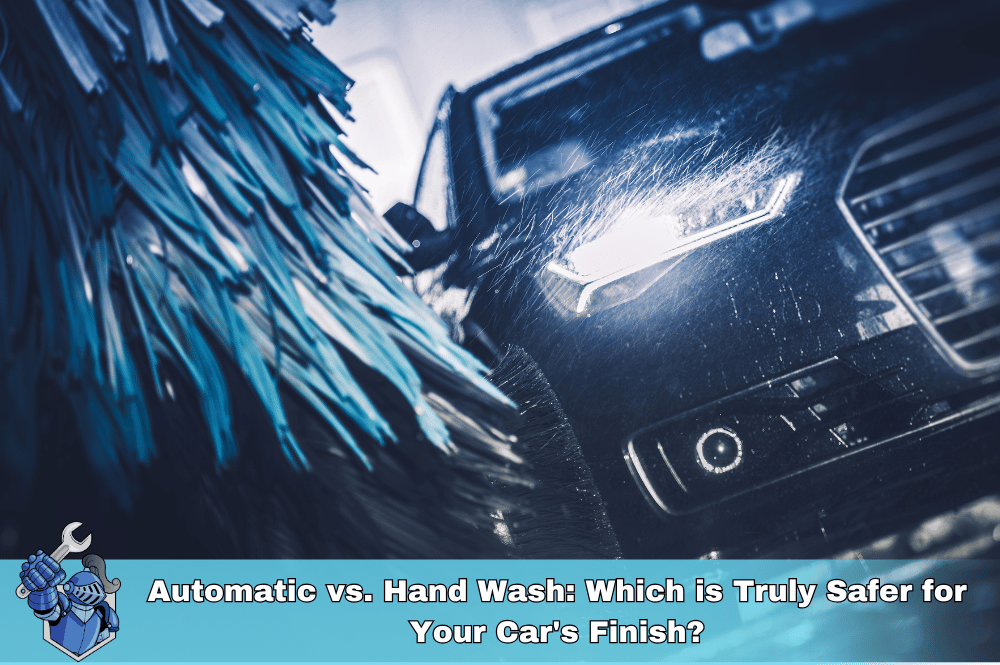 Automatic vs. Hand Wash: Which is Truly Safer for Your Car's Finish?
Automatic vs. Hand Wash: Which is Truly Safer for Your Car's Finish? 2025 Porsche Taycan: The Ultimate Guide to Porsche's Electrifying Evolution
2025 Porsche Taycan: The Ultimate Guide to Porsche's Electrifying Evolution The Connected Car’s 'Black Box': How Your Data Impacts Warranty Claims
The Connected Car’s 'Black Box': How Your Data Impacts Warranty Claims Navigating the Online Vehicle Marketplace: Your Comprehensive Guide to Finding the Perfect Car or Truck
Navigating the Online Vehicle Marketplace: Your Comprehensive Guide to Finding the Perfect Car or Truck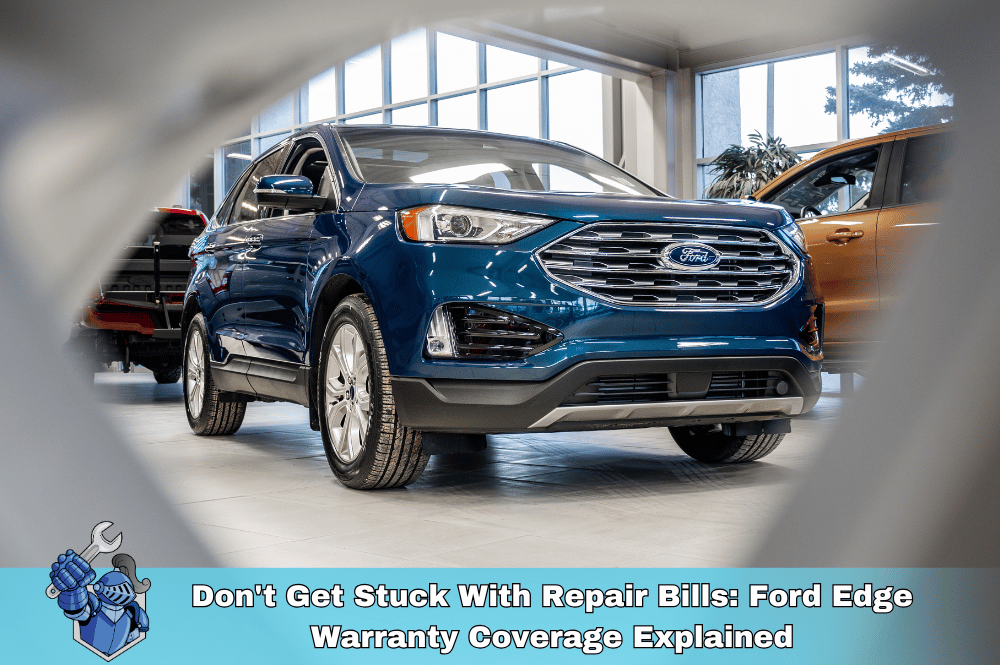 Don’t Get Stuck With Repair Bills: Ford Edge Warranty Coverage Explained
Don’t Get Stuck With Repair Bills: Ford Edge Warranty Coverage Explained Stop Paying for Potholes: The Smart Way to Protect Your Wheels and Tires
Stop Paying for Potholes: The Smart Way to Protect Your Wheels and Tires RV Road Trip Ready: Secure Your Adventures with Extended Warranty Coverage
RV Road Trip Ready: Secure Your Adventures with Extended Warranty Coverage Recession-Proof Your Ride: Why an Extended Car Warranty Makes Sense Now
Recession-Proof Your Ride: Why an Extended Car Warranty Makes Sense Now What is a Home Warranty and Do You Need One?
What is a Home Warranty and Do You Need One? NobleQuote: Best Auto Protection, Not Just the Oldest
NobleQuote: Best Auto Protection, Not Just the Oldest

